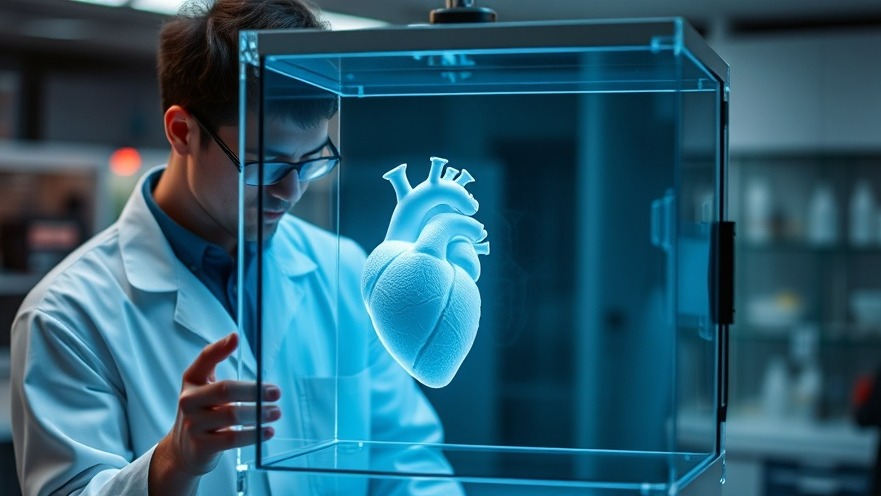
Understanding the Impact of ECT on Suicide Rates
A recent meta-analysis published in Neuroscience Applied provides a groundbreaking insight into the efficacy of electroconvulsive therapy (ECT) in reducing suicide risks among individuals with severe depression. According to researchers from the University Psychiatric Clinics Basel in Switzerland, ECT treatment yields a remarkable 34% reduction in suicide rates when compared to traditional antidepressant medications.
Electroconvulsive therapy has long been considered a last-resort treatment, often shrouded in stigma due to historical misapplications and misconceptions. However, this study accumulates substantial evidence reinforcing ECT's position as the most effective intervention for severe depression. Moreover, it highlights the therapy's potential advantages beyond mental health, including a 30% decline in overall mortality.
The Global Context of Depression and Suicide
Major Depressive Disorder (MDD) is a worldwide health crisis that affects an estimated 300 million individuals, reflecting a drastic increase in prevalence, particularly following the COVID-19 pandemic. Of alarming significance is that suicide remains the fourth leading cause of death among young adults, a demographic greatly affected by depressive disorders. With individuals suffering from these conditions facing a 20-fold higher risk of suicide, the importance of effective, life-saving treatments cannot be overstated.
This new evidence serves as a clarion call for those in the health profession—particularly concierge practitioners, who are often at the forefront of patient care—to incorporate ECT discussion into their treatment planning for severely depressed patients.
Research Insights from Neurostimulation Therapies
The meta-analysis consolidated data from 1,352 scientific studies, narrowing down to 26 high-quality studies that met rigorous inclusion criteria. The examination focused not only on ECT but also on other neurostimulation therapies, including repetitive Transcranial Magnetic Stimulation (rTMS) and Vagus Nerve Stimulation (VNS). All these interventions were scrutinized for their effectiveness in managing suicidal behaviors and overall mortality rates.
Dr. Timur Liwinski, the study's lead researcher, affirmed, "Our findings underscore that ECT is not only a treatment for severe depression but significantly lowers the risk of suicide and death from any cause." This perspective is crucial as approximately one in three patients with major depression are classified as resistant to conventional treatment methods, underlining the urgency for alternative therapeutic options.
Future Directions: Bridging Treatment Gaps
As mental health professionals, the acknowledgment of effective treatment modalities presents opportunities for expanding patient care repertoire. While ECT therapy may not be suitable for everyone, understanding its potential can substantially enhance treatment outcomes for patients facing profound despair. In settings where traditional antidepressants fail, mental health practitioners must recognize the ability of neurostimulation techniques to elicit positive outcomes.
Additionally, public perception and education regarding ECT should strategically evolve. By addressing myths and disseminating factual information through practitioner-led initiatives, more patients might reconsider this vital therapeutic option.
Call to Action: Integrating ECT in Patient Care Discussions
For concierge health practitioners, staying abreast of developments in mental health treatments is essential. The findings of this analysis indicate that discussing ECT with patients may not only save lives but also foster a better understanding of available treatment alternatives. Encouraging open conversations about therapies like ECT will empower patients and their families to make informed decisions regarding their mental health journeys.
In conclusion, integrating these insights into practice is imperative. Equip yourself with knowledge about brain stimulation treatments and consider how they can be effectively introduced into patient care strategies. Addressing the stigma surrounding mental health treatments like ECT will ensure that patients receive the comprehensive care they deserve to combat severe depression.
 Add Row
Add Row  Add
Add 






Write A Comment